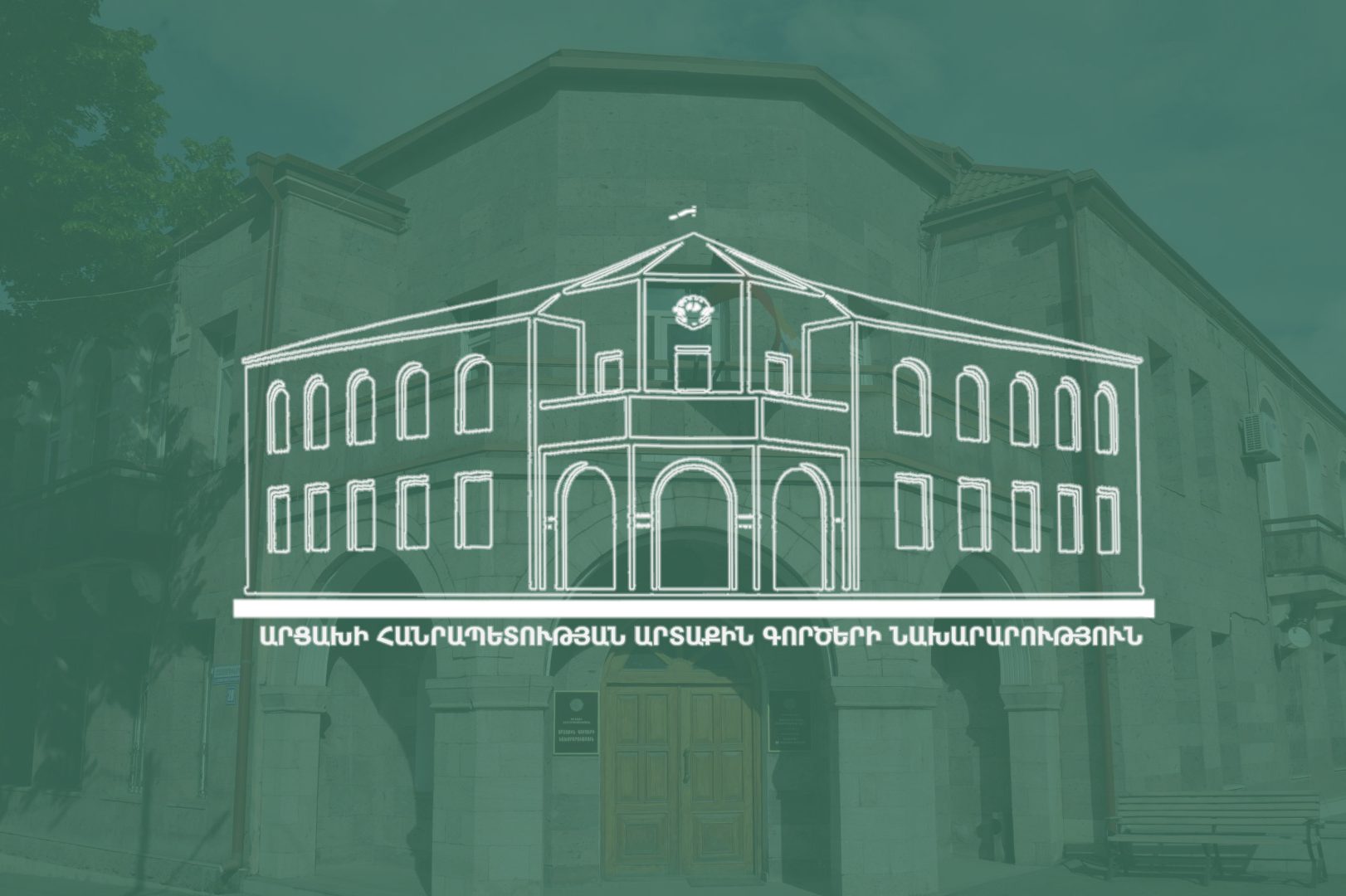The Artsakh Ministry of Foreign Affairs issued a statement regarding the abduction of a citizen of the Republic of Artsakh by Azerbaijanis illegally stationed in the Lachin Corridor.
“On 29 July, a 68-year-old citizen of the Republic of Artsakh, who was being transported to Armenia for medical treatment under the supervision of the International Committee of the Red Cross (ICRC), was abducted by representatives of Azerbaijan from the checkpoint illegally established in the Lachin Corridor. The passage of the citizen of Artsakh was agreed in advance through the mediation of the ICRC.
The illegal arrest of a citizen of Artsakh, being under the protection of the international law and the ICRC mandate , constitutes a flagrant violation of international humanitarian law and human rights, provisions of the Trilateral Statement of 9 November 2020 and legally binding Orders of the International Court of Justice and ECtHR, and clearly demonstrates the true intentions of Azerbaijan towards the people of Artsakh. It is evident that if Azerbaijan’s policy of forced subjugation of Artsakh, which Baku presents to the international community as its resolution plan, succeeds, abductions, illegal detentions, extrajudicial killings, enforced disappearances and other massive violations of the rights of Artsakh Armenians will become a widespread.
In case of the control over the citizens of Artsakh, the Azerbaijani authorities will not miss the opportunity to subject them to illegal detention, torture, deprive them of their lives or violate their human rights in any other way. If falling under the control of Azerbaijan, the Armenians of Artsakh have practically no chance of survival and humane treatment. Thirty-eight civilians who fell in hands of the Azerbaijani military during the aggression against Artsakh in 2020 have already become victims of this inhumane policy of Azerbaijan. All of them were tortured and brutally killed. Three other civilians, as well as three police officers and twenty-one military personnel of the Republic of Artsakh, were killed by Azerbaijan after the war and the signing of the trilateral ceasefire statement of 9 November 2020.
The abduction of a civilian is yet another example of Azerbaijan’s state policy of widespread and systematic violations of the rights of Artsakh’s residents directly arising from the establishment of an illegal checkpoint in the Lachin corridor, which has become an instrument of intimidation of the Armenians of Artsakh, infringement of their rights and dignity, as well as an excuse for committing war crimes. Having subjected the people of Artsakh to starvation and other hardships for almost eight months, deliberately and arbitrarily depriving them of the right to receive humanitarian relief, the Azerbaijani authorities have now resorted to persecuting vulnerable citizens of Artsakh on an individual level.
We demand that all involved international actors, including the ICRC, take urgent and effective measures to immediately release and repatriate the abducted citizen of Artsakh, put an end to crimes against humanity committed by Azerbaijan against the people of Artsakh, as well as prevent the escalation of these violations into the crime of genocide. We consider it imperative to consolidate the efforts of all involved actors for a complete and unconditional cessation of the blockade and the establishment of a long-term international mechanism to protect the rights and security of the people of Artsakh from Azerbaijan’s genocidal policies.
We insist that the issue of the ongoing, nearly 8-month-long illegal blockade, carried out as part of Azerbaijan’s state policy of annihilation of the people of Artsakh as such, be promptly addressed by the United Nations Security Council. We call upon the International Committee of the Red Cross, as the only international organisation present on the ground and endowed with the relevant international mandate, to urgently express its public position and provide the international community, particularly the member states of the UN Security Council, with detailed factual and legal information regarding the situation in Artsakh and Azerbaijan’s actions.”















